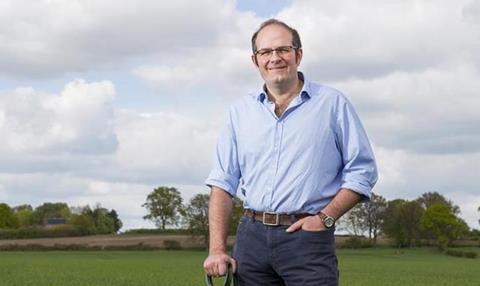A consultation into the future of gene-editing for livestock and crops has gained support from the UK meat and food industry.

The ten-week consultation, announced by Environment Secretary George Eustice, will focus on stopping certain gene-editing organisms from being regulated in the same way as genetic modification, a move that would reverse current EU policy.
The Department for Environment, Food and Rural Affairs (Defra) stated that gene editing held potential benefits, such as reducing dependence on pesticides, as well as claiming that the process was different from genetic modification.
Speaking at the Oxford Farming Conference, George Eustice, will say: “Gene editing has the ability to harness the genetic resources that mother nature has provided, in order to tackle the challenges of our age. This includes breeding crops that perform better, reducing costs to farmers and impacts on the environment, and helping us all adapt to the challenges of climate change.
“Its potential was blocked by a European Court of Justice ruling in 2018, which is flawed and stifling to scientific progress. Now that we have left the EU, we are free to make coherent policy decisions based on science and evidence. That begins with this consultation.”
“We know that on its own gene editing will not be a silver bullet, but it could be a very important tool to help us meet the challenges for the future.”
Professor Robin May, the Food Standards Agency’s chief scientific advisor, added: “The UK prides itself in having the very highest standards of food safety, and there are strict controls on GM crops, seeds and food which the FSA will continue to apply moving forward.
“As with all novel foods, GE foods will only be permitted to be marketed if they are judged to not present a risk to health, not to mislead consumers, and not have lower nutritional value than existing equivalent foods. We will continue to put the consumer first and be transparent and open in our decision-making. Any possible change would be based on an appropriate risk assessment that looks at the best available science.”
The consultation has been welcomed by various trade organisations, including National Farmers Union (NFU). Vice president, Tom Bradshaw, commented: “New precision breeding techniques such as gene editing have the potential to offer huge benefits to UK farming and the environment and are absolutely critical in helping us achieve our climate change net zero ambition.
“In our drive to achieve net zero by 2040, these new tools could help us address pest and disease pressures on our crops and livestock, increasing our resilience in the event of extreme weather events, as well as reducing our impact through a more efficient use of resources, resulting in lower emissions and less waste.
“New biotechnologies are also enabling the development of foods with much more direct benefit to the public, such as healthier oils, higher vitamin content and products with a longer shelf life.
“Certainty, transparency and trust in the regulation of biotechnologies, such as gene editing, are essential for farmers and industry, society and scientists, so that safe and effective precision breeding can be delivered as part of a thriving, knowledge-based, food and farming sector and we look forward to responding to this government consultation in detail.
“We know that on its own gene editing will not be a silver bullet, but it could be a very important tool to help us meet the challenges for the future.”
The Food and Drink Federation’s (FDF) chief scientific officer, Kate Halliwell, added: “FDF supports the use of technological solutions to support the competitiveness and sustainability of the UK food and drink supply chain. We do that in the context of maintaining our ability to trade our high-quality products on a global platform. We support conducting a consultation to further understand the opportunities of the UK moving to a definition of gene editing which is in keeping with the international Cartagena Protocol on biosafety.
“We previously urged the Government to launch this consultation to ensure that all the tools needed by our industry would remain on the table for consideration. Divergence from European regulations could impact trade to the EU and also needs to be considered by Government in parallel to the clear opportunity such a technology presents.”
This story was originally published on a previous version of the Meat Management website and so there may be some missing images and formatting issues.












